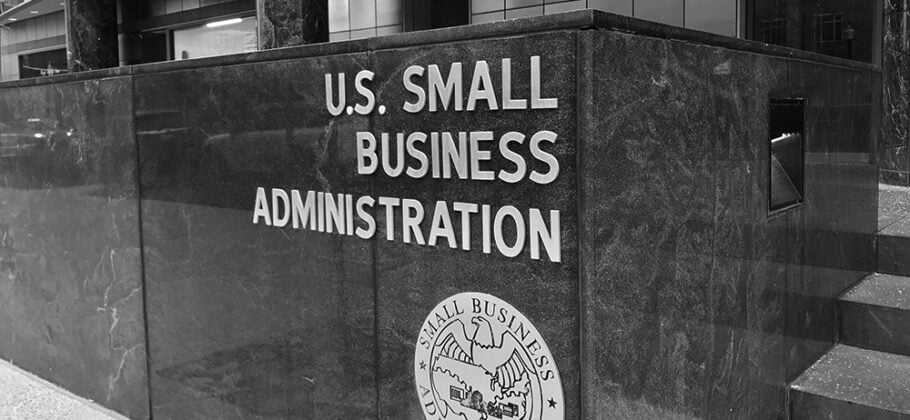In the heat of the daily grind as a small business person it is often difficult to find the time or energy to look for programs or assistance that might further your cause. If you are in business you probably have expertise or particular knowledge in your area of concern, but if it’s not finance, marketing, or perhaps website development, then these skills need to be obtained elsewhere. The first thing you ask yourself is where do I find the time to find out about this stuff, and secondly how would I pay for it. Start small and allocate an hour of time and look first to what can be free advice through the Small Business Administration (SBA) and some of its lesser known programs.
The SBA offers a plethora of opportunities from receiving advice, mentoring, access to capital, federal contracting assistance and more to further your business. According to Holly Wade, executive director of the NFIB Research Center at the National Federation of Independent Business, a small-business advocacy organization, “It’s often a challenge to find the thing that would be most helpful in a huge universe of information.” We’ll examine a handful of ideas here and point you in the right direction.
Small Business Development Centers
On the local level, the place where you should probably start is with one of the SBA’s Small Business Development Centers (SBDC). Small Business Development Centers provide free marketing, financing, and business-related assistance to local entrepreneurs. SBDC’s are cooperative efforts involving the SBA, a college or university, and often other private or public partners. There are more than 1,000 SBDC’s, operating in all 50 states, the District of Columbia, and many U.S. territories. The services often tend to be catered to local needs and local economic development strategies.
The SBDC not only provides entrepreneurs with assistance, but also can be of interest to lenders such as local banks, credit unions, venture capital firms and others who are potential lenders to small businesses. This becomes a source of new clients for the financial institutions, and introduces entrepreneurs to financing sources they may have otherwise missed. Thinking about expanding your business internationally? The Export-Import Bank of the U.S. has partnered with SBDC’s to increase export activity among small businesses.
SCORE Program
Score is probably the most recognizable SBA program to entrepreneurs. Score dates back to 1964 and has helped some 11 million entrepreneurs start, expand and exit businesses. There is no membership requirement to receive SCORE counseling, which means that any small business owner can call and make an appointment with their local SCORE chapter.
So what can you expect from a SCORE consultant? It typically begins with a mentoring session that is a confidential, personalized conversation with a business expert to answer a question or to solve a problem that you’re facing. SCORE mentors will offer advice, resources, and insights so you gain clarity on your next best steps. Entrepreneurs are usually matched with SCORE counselors based on their type of business and the counselor’s area of specialty. SCORE’s annual report boasts some impressive statistics.
- An increase of 30% in total annual services
- More than 45,000 new businesses started with the help of SCORE mentors with as many as 120,000 jobs created
- Roughly four million volunteer hours were documented for the fiscal year
- The organization facilitated 315,283 mentoring sessions
Small Business Innovation Research Programs
There is a technology-based arm of the SBA called the Small Business Innovation Research (SBIR) program, or better known as America’s Seed Fund. According to the SBIR, its programs fund a diverse portfolio of startups and small businesses across technology areas and markets to stimulate technological innovation, meet Federal research and development (R&D) needs, and increase commercialization to transition R&D into impact.
Although the typical award threshold in Phase I is now $295,924, small businesses receive more than $4 billion in funding each year to develop their innovative research ideas into commercial products and services. The program is highly competitive, with only about 18% of applicants selected annually. Depending upon what your niche might be, there are currently 5 government agencies involved in the SBIR program:
- Department of Defense
- Department of Energy
- Department of Health and Human Services
- National Aeronautics and Space Administration
- National Science Foundation
Eligibility is pretty straight forward. Your business must be a for-profit concern located in the United States; More than half (50%) owned and controlled by one or more people who are U.S. citizens; and have no more than 500 employees.
Federal contracting-assistance programs
Believe it or not, the federal government tries to ensure that small businesses win at least 23% of all federal contracting dollars each year. The catch here is that you have to fit into one of their categories to take advantage of the program. For instance, the SBA program offers advantages to women business owners, veteran and small businesses located in HUB Zones, or historically underused business zones. According to Casey Clark, chief executive of small-business advising firm Cultivate Advisors, “The federal government’s goal is to award at least 5% of all federal contracting dollars to women-owned small businesses each year, yet a large number of women-owned businesses aren’t aware they can become certified to compete.” The government also aims to award at least 3% of federal contract dollars to HUB Zone-certified companies each year.
Entrepreneurs and small business owners comprise the majority of business entities in America. Take advantage if you can of the free SBA resources and potential funding that is offered each year to small businesses.











